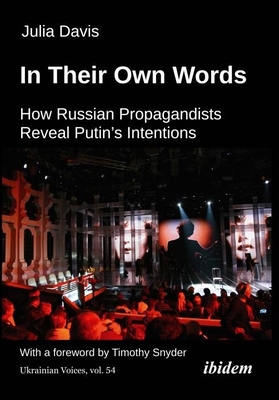
Davis, Julia
product information
description
es, written between 2019 and 2024 for such outlets as The Daily Beast and The Center for European Policy Analysis (CEPA), illuminates recent Russian international affairs through the lens of Moscow's propaganda tactics. For more than two decades, the Kremlin's agitators have been tasked to lay, in advance, the groundwork for various domestic and foreign actions by the regime of Vladimir Putin. Thus, Russian state-controlled media provides crucial clues for deciphering the--often sinister--goals that the government of Russia was and is planning to pursue abroad, from election interference to military invasions. The goal of the sum of these activities is the establishment of a new world order--with Russia at its helm. Before the large invasion of 24 February 2022, Russian state media portrayed the West as incapable of opposing Russian aggression. Putin's propagandists cheered for war against Ukraine, predicting it would be quick and victorious. Misreading the ability of the West to unite and miscalculating Russia's capabilities in confronting determined Ukrainians, Russia ended up in a quagmire of its own creation. In 2024, Putin's decorated propagandists face the possibility of future scrutiny and potential prosecutions for their proactive incitement of genocide. They unravel, along with the Kremlin, having to tell multiple conflicting stories and condemn the same players they used to lionize. Backed into the corner, they resort to nuclear threats and demand even more blood from Ukraine, whose only crime is its desire for democracy and freedom.
member goods
No member items were found under this heading.
Return Policy
All sales are final
Shipping
No special shipping considerations available.
Shipping fees determined at checkout.







